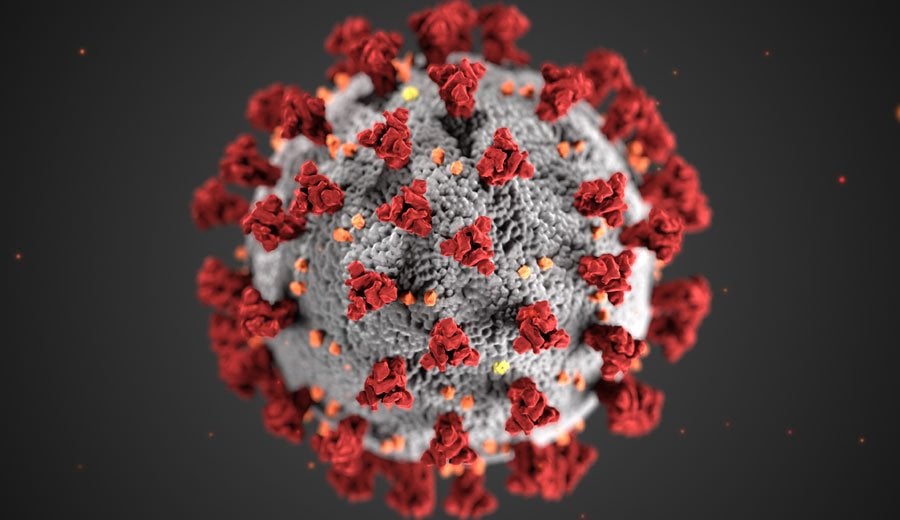The projected effect of implementing roadmap Step 4 in England on the 19th of July 2021
13 July 2021 London School of Hygiene & Tropical Medicine London School of Hygiene & Tropical Medicine https://lshtm.ac.uk/themes/custom/lshtm/images/lshtm-logo-black.png
Changes in people’s behaviour will be one of the most important factors influencing the size of the third wave of COVID-19 in England, according to new modelling by the London School of Hygiene & Tropical Medicine (LSHTM).
The team projected the effect of implementing roadmap Step 4 in England on the 19th of July 2021 for various scenarios considering combinations of behaviour changes, vaccine effectiveness estimates, vaccine uptake, waning immunity and severity of the Delta B.1.617.2
Not yet peer reviewed, the results project a wave of COVID-19 transmission over the summer and autumn months of 2021 for all scenarios considered, with varying levels of hospital admissions, hospital bed occupancy and mortality depending on the assumptions.
Under most scenarios the peak in hospital admissions and deaths is likely to be significantly lower than that observed in the January 2021 wave (6,000-9,000 deaths in the most optimistic scenario). However, there is much uncertainty in these projections with length of immunity a key factor.
The biggest variation in projected waves of transmission occurs in relation to behavioural changes, including in the reduction in self-protective measures such as use of Test, Trace and Isolate, physical distancing, mask wearing, meeting outdoors and changes in mobility.
For example, in a scenario with no waning immunity and medium estimates for vaccine efficacy, an 80% reduction in self-protective measures might result in 160,000 hospital admissions and 19,000 deaths between 1 July and 31 December 2021. In contrast, a 20% reduction in self-protective measures is projected to lead to 82,000 hospital admissions and 9,000 deaths.
If there is a high level of mobility following the implementation of step 4, the team project 160,000 hospital admissions and 18,000 deaths. If there is low mobility the projections reduce to 81,000 hospital admissions and 8,900 deaths.
In some scenarios, a smaller secondary peak occurs in the autumn and winter months of 2021, which is due to the summer school holidays in England suppressing transmission from the end of July until September 2021 and waning immunity.
The team also project that roughly half of the hospitalisations and deaths occurring in the summer 2021 are likely to be in vaccinated individuals, depending upon vaccine coverage. Admissions are projected to be split relatively evenly between the 45-64, 65-74 and 75+ year age groups, while deaths are likely to be concentrated in the 75+ age group.
The research was conducted by a team from LSHTM’s Centre for the Mathematical Modelling of Infectious Diseases (CMMID), led by Dr Rosanna Barnard and Dr Nick Davies. The report, along with work from Imperial College London and the University of Warwick, is informing the UK government's ‘roadmap’ out of lockdown for England.
Professor John Edmunds from CMMID and an author of the new report said: “Our work highlights the importance of mask wearing, social distancing and vaccination in reducing the number of hospitalisations and deaths in England from COVID-19 for the rest of the 2021. Most deaths are likely to occur in vaccinated individuals, mainly people over the age of 75. However, this is purely because most people in England are now vaccinated thanks to the incredible success of the roll-out and that when we open up many more people will become exposed to COVID-19.”
The research team say these projections are subject to considerable uncertainty. It is not possible to accurately predict how mobility and contacts will change following the easing of restrictions. Furthermore, there remains enormous uncertainty in the characteristics of the Delta B.1.617.2 variant (in terms of immune escape and transmissibility) and the effectiveness of vaccines in preventing infection and serious disease.
***This paper has not yet been peer-reviewed***
Publication
LSHTM: Updated roadmap assessment - prior to delayed Step 4, 7 July 2021. Gov.uk
Our postgraduate taught courses provide health practitioners, clinicians, policy-makers, scientists and recent graduates with a world-class qualification in public and global health.
If you are coming to LSHTM to study a distance learning programme (PG Cert, PG Dip, MSc or individual modules) starting in 2024, you may be eligible for a 5% discount on your tuition fees.
These fee reduction schemes are available for a limited time only.